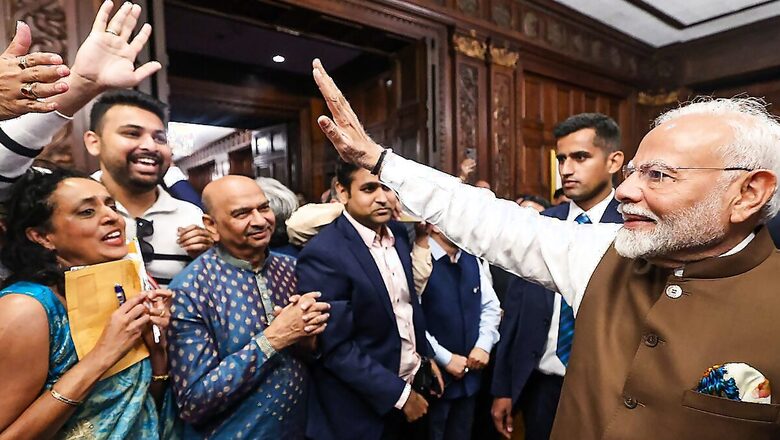
views
Prime Minister Narendra Modi’s recent diplomatic engagements have placed India at the forefront of global attention. His attendance at the G7 summit in Italy, followed by visits to Russia and Ukraine culminating in a trip to the United States, coupled with National Security Advisor Ajit Doval’s meeting with Russian President Vladimir Putin in Moscow and External Affairs Minister S. Jaishankar’s visit to Berlin, signal a heightened role for India in facilitating dialogue and potentially mediating between the warring parties.
MODI’S MULTIFACETED DIPLOMACY
Amid the backdrop of the ongoing Russia-Ukraine conflict, Prime Minister Modi was invited to attend the G7 summit earlier this year. His presence at this forum, his fifth consecutive attendance, historically dominated by Western powers who largely condemned Russia’s actions, underscored India’s growing economic influence and its increasing importance in shaping international policy discussions, particularly as the conflict’s ripple effects impact the global economy and energy security.
It is also a critical time for the West as it tries to contain China economically as well as geopolitically. India stands to gain majorly from G7 countries trying to shift their economic ties away from China to friendly countries. India’s willingness to collaborate on shared concerns such as climate change, economic stability, China and Russia, while maintaining its unique position of autonomy is a testament to our newfound role at the world stage.
However, it was Modi’s subsequent visits to Russia and Ukraine that truly demonstrated the sophistication of his diplomatic approach. These trips, undertaken against the backdrop of the ongoing conflict, presented a delicate balancing act for India, which has long-standing ties with both the countries.
In Moscow, Modi reaffirmed India’s commitment to its historic partnership with Russia, a relationship built on decades of cooperation in defence, trade and energy. While acknowledging the need for a peaceful resolution to the conflict, Modi refrained from criticising Russia’s actions directly. Modi also became only the second world leader after Xi Jinping to visit Moscow and meet Putin since the war.
Held productive discussions with President Putin at the Kremlin today. Our talks covered ways to diversify India-Russia cooperation in sectors such as trade, commerce, security, agriculture, technology and innovation. We attach great importance to boosting connectivity and… pic.twitter.com/JfiidtNYa8— Narendra Modi (@narendramodi) July 9, 2024
Conversely, during his visit to Kyiv, Modi expressed India’s unwavering support for Ukraine’s sovereignty and territorial integrity. He condemned the violence and offered humanitarian assistance to the Ukrainian people, emphasising the need for an immediate cessation of hostilities. This visit, the first by an Indian Prime Minister to Ukraine since its independence, signalled India’s solidarity with a nation facing aggression and its commitment to upholding international law and principles of peaceful coexistence.
These seemingly divergent positions, taken within a short span of time, might appear contradictory at first glance. However, they reflect a carefully calibrated diplomatic strategy aimed at preserving India’s relationships with both sides, while simultaneously advocating for peace and stability. By engaging with both Russia and Ukraine, Modi demonstrated India’s willingness to act as a bridge diverging states and potentially facilitate dialogue.
India’s approach is rooted in its long-standing foreign policy principle of ‘strategic autonomy’, which prioritises independent decision-making and avoids alignment with any particular power bloc. The approach is both pragmatic and putting India’s interest first.
INDIA’S BALANCING ACT
India’s foreign policy doctrine of ‘strategic autonomy’ has long been a cornerstone of its international relations. This approach, rooted in the nation’s post-colonial experience and its commitment to non-alignment during the Cold War, prioritises independent decision-making in foreign affairs, avoiding entanglement in great power rivalries and preserving the ability to forge partnerships based on national interest rather than ideological alignment. This has allowed India to cultivate robust relationships with a diverse array of nations.
A prime example of this delicate balancing act is India’s relationship with both Russia and the West, particularly the United States. Historically, India has enjoyed a close strategic partnership with Russia, dating back to the Soviet era. This partnership has been underpinned by strong defence ties, with Russia being a major supplier of military equipment to India.
However, in recent decades, India has also sought to deepen its engagement with the West, recognising the importance of these relationships for its economic development and security interests. The US, in particular, has emerged as a key partner for India, with growing cooperation in areas such as defence, trade and technology. Recently, both the countries signed the Security of Supplies Arrangement which will streamline the process for both countries to acquire critical defence equipment from each other, ensuring a reliable supply chain even during unforeseen crises.
The ongoing Russia-Ukraine conflict has placed significant strain on India’s ability to maintain this delicate balance. Western powers, led by the United States, have imposed stringent sanctions on Russia and have actively sought to isolate it diplomatically.
India’s response to the conflict has been characterised by a nuanced and pragmatic approach. It has refrained from explicitly condemning Russia’s actions, abstaining from UN votes criticising the invasion and maintaining its economic ties with Moscow, including the purchase of discounted Russian oil. This stance has drawn criticism from some Western quarters, who have urged India to take a more forceful stand against Russia. However, India has defended its position, arguing that it is acting in its own national interest and that dialogue and diplomacy are the only path to a peaceful resolution of the conflict.
India’s approach reflects a broader shift in the global landscape towards multipolarity. The rise of China, coupled with the resurgence of Russia, has challenged USA’s unipolarity that characterised the post-Cold War era. In this evolving world order, India seeks to maintain its strategic autonomy and avoid becoming overly reliant on any single power.
India’s commitment to strategic autonomy is not without its challenges. The pressure from Western powers to take a stronger stance against Russia is likely to persist.
Russian President Vladimir Putin had a meeting with Ajit Doval, National Security Advisor to the Prime Minister of India, at the Konstantinovsky Palace in St Petersburg.During the conversation, Russia's President proposed to hold a bilateral meeting with India's Prime Minister… pic.twitter.com/1JV22p76dY
— ANI (@ANI) September 12, 2024
DIPLOMATIC INITIATIVES BY DOVAL, JAISHANKAR
India’s proactive engagement in seeking a resolution to the Russia-Ukraine conflict extends beyond Modi’s direct involvement. Doval’s meeting with Putin in Moscow and Jaishankar’s visit to Berlin highlight India’s more proactive and pronounced role in conflicting times. It is also a signal that India is being seriously looked as a peace broker, a status often revered to nations with serious heft at the international stage.
Doval’s meeting with Putin in Moscow focused on exploring potential pathways for de-escalation and the resumption of negotiations between Russia and Ukraine. The discussions reportedly centered on identifying common ground and exploring confidence-building measures that could pave the way for a ceasefire and meaningful dialogue.
Jaishankar’s visit to Berlin, on the other hand, aimed at engaging with European leaders on the broader implications of the Russia-Ukraine conflict and exploring India’s potential role in facilitating a peaceful settlement. During his meetings with German officials, including Foreign Minister Annalena Baerbock, Jaishankar emphasised the need for a diplomatic solution that addresses the security concerns of all parties involved. He also highlighted India’s growing concern over the humanitarian impact of the conflict, particularly on developing countries that are facing food and energy shortages as a result of the disruption in global supply chains.
India’s diplomatic efforts are guided by a four-point principle that has been articulated by Jaishankar in various international forums. This principle emphasises:
- This is not the era of war: India believes that war is not a viable solution to international disputes in the 21st century and that dialogue and diplomacy are the only path to lasting peace.
- There are no solutions on the battlefield: India recognises that military solutions rarely achieve lasting peace and that a negotiated settlement is essential to address the underlying causes of the conflict.
- Russia must be at the table for talks: India acknowledges that Russia is a key stakeholder in the conflict and that its participation in any peace process is essential for a durable resolution.
- India is concerned and engaged to find a resolution: India is deeply concerned about the humanitarian consequences of the conflict and is actively engaged in seeking a peaceful settlement that addresses the legitimate security concerns of all parties involved.
Thank you President @ZelenskyyUa. India will continue to support peace, security and prosperity for everyone in the region. https://t.co/IAgyBH08Gl— Narendra Modi (@narendramodi) June 5, 2024
LESSONS FOR THE WORLD
India’s diplomatic engagements in the context of the Russia-Ukraine conflict offer several lessons for the international community. Firstly, India’s ability to maintain balanced relationships with diverse powers, even those with opposing views on critical issues, provides a model for other countries seeking to navigate a complex and multipolar world. Secondly, India’s emphasis on dialogue and diplomacy, even in the face of a protracted and seemingly intractable conflict, underscores the importance of peaceful resolution and the need to avoid escalating tensions. Thirdly, India’s commitment to promoting peace and stability, not only in its own region, but also in other parts of the world, demonstrates its growing role as a responsible global power.
India’s unique position affords it a significant opportunity to play a constructive role in mediating the conflict and potentially facilitating a peaceful resolution. Its ability to engage with both Russia and Ukraine, as well as with Western powers, allows it to serve as a bridge between the opposing players and potentially foster dialogue and understanding. This intricate web of relationships stems from India’s long-standing policy of strategic autonomy, its commitment to non-alignment, and its ability to forge partnerships based on national interest rather than ideological divides.
While many nations have been forced to choose sides in the conflict, aligning themselves either with Russia or the West, India has deftly navigated this diplomatic tightrope, maintaining open channels of communication and cooperation with all parties involved. As the conflict continues to unfold, India’s unique position and its diplomatic efforts could prove crucial in shaping the path towards a more peaceful and stable future for the region and the world.












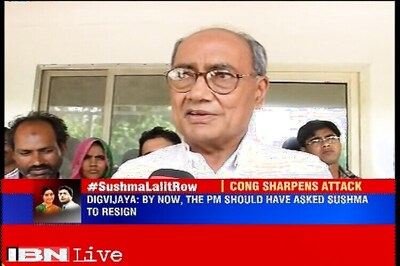


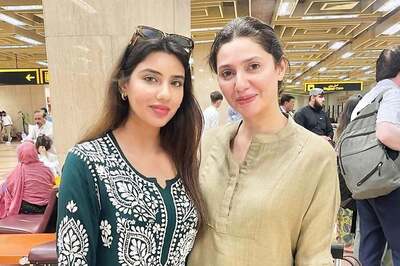

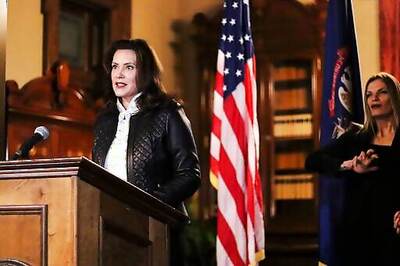

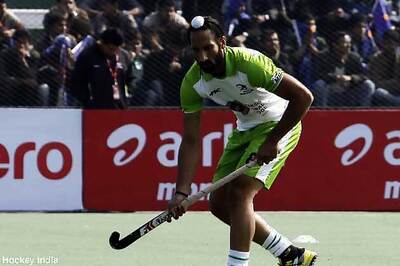
Comments
0 comment